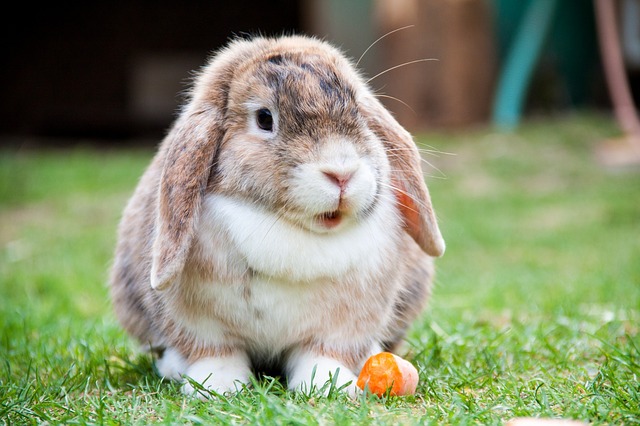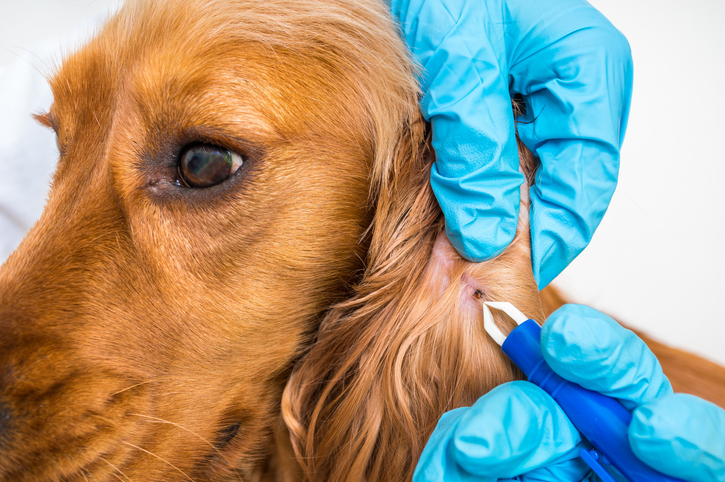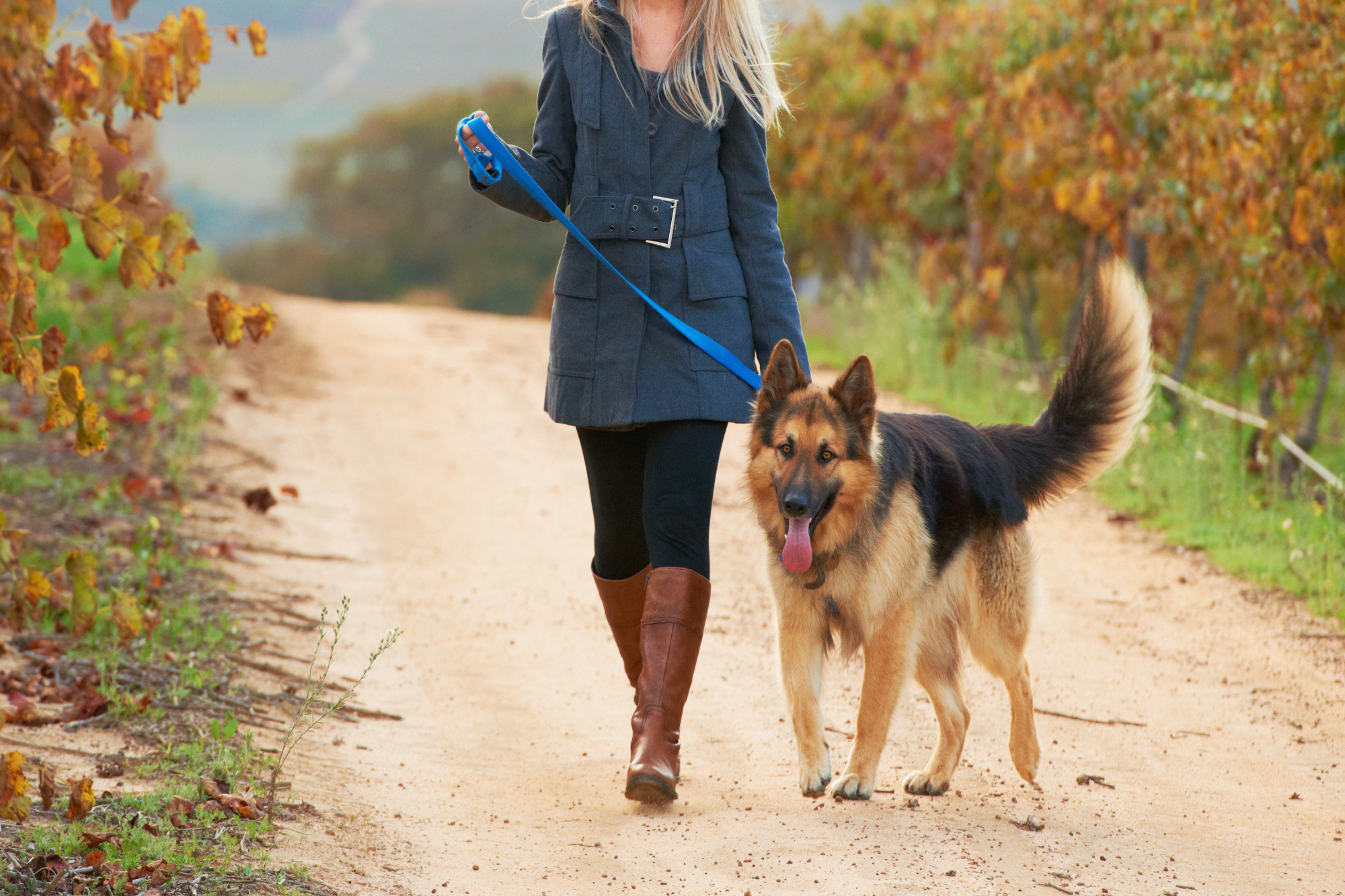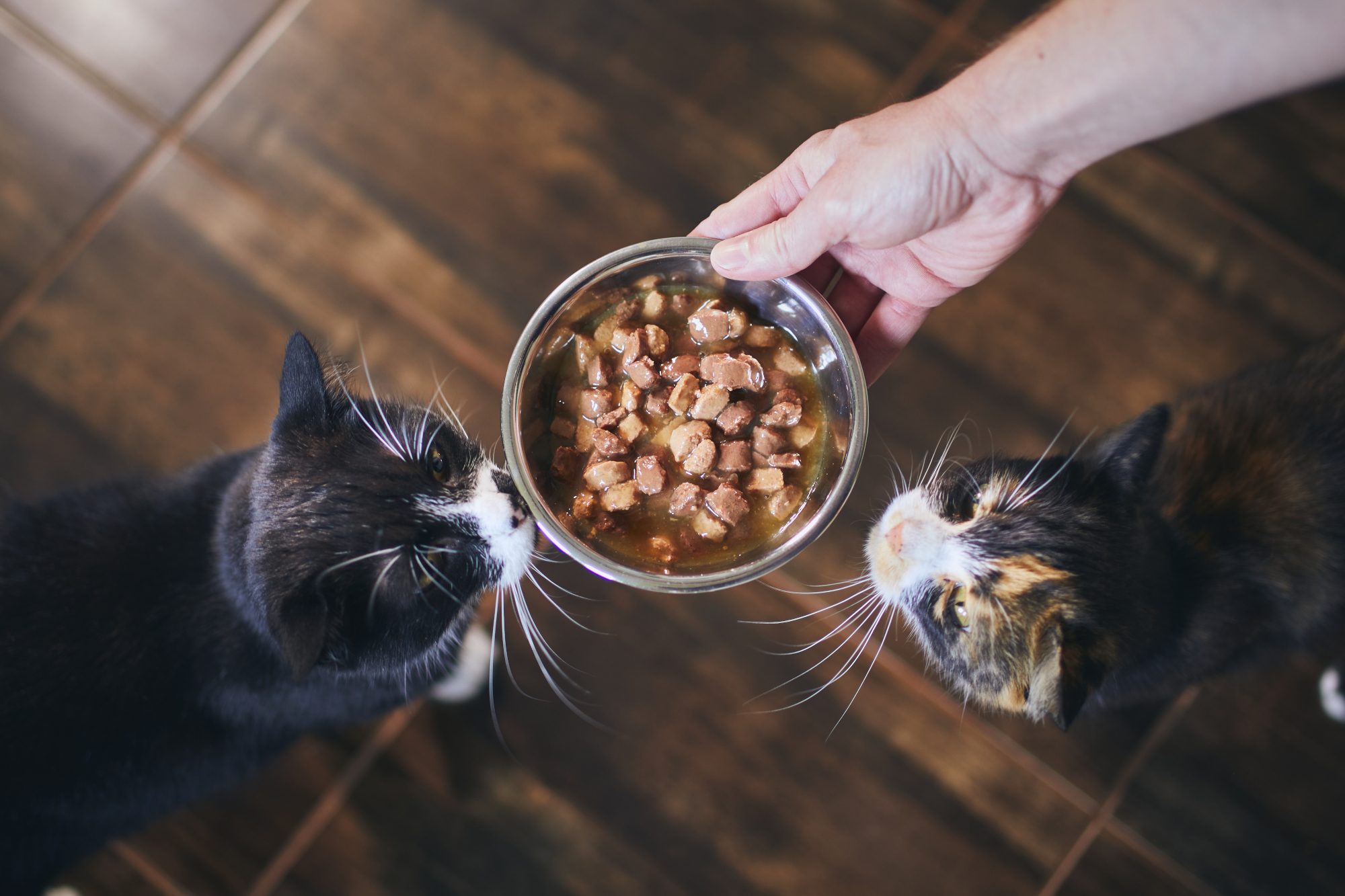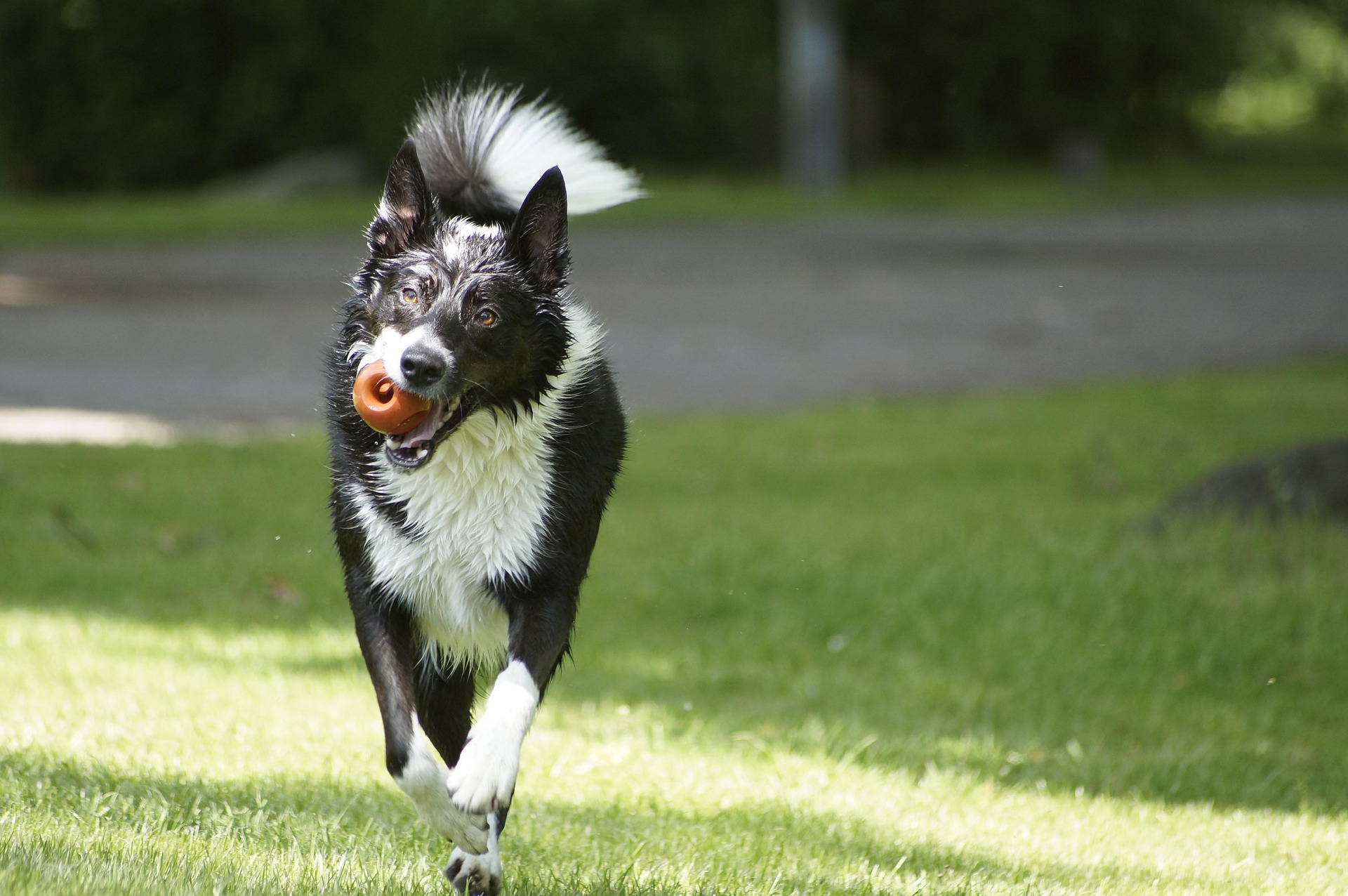One of the most important tasks you’ll have after adopting a cute little rabbit is taking care of your new pet’s teeth. If you supply the diet and care needed to keep the teeth healthy, which continue to grow for his or her lifetime, you’ll have a happy, healthy bunny!
Why Teeth are so Important to Your Rabbit’s Well-being
A rabbit’s teeth are not like those of a cat or dog—they’re more like those of a horse. Horses and rabbits are herbivores with teeth of different sizes for different chewing jobs structured to break down tough, fibrous vegetation. They also share similar bacteria in their intestinal tracts to help them remove the nutritional value from fibrous material and digest it.
The slicing and biting action of the front incisors, along with the grinding action of the back teeth while chewing tough vegetation, is needed to keep your rabbit’s teeth healthy and reduce overgrowth. It is imperative that your bunny’s teeth are healthy for your little pet to be a healthy animal.
Rabbits that live indoors are at risk for dental problems if their owners don’t understand the risk of feeding their pets a pellet-based diet. Even though rabbits can get sufficient nutrition from pellets, this diet does not offer enough fiber and resistance to keep the teeth, particularly the large incisors, from becoming overgrown.
As well as the very visible four incisors at the front, there are two tiny incisors, called “peg teeth,” behind the upper incisors. Including the grinding teeth—the molars—behind the incisors called “cheek teeth,” there are 28 teeth total in your pet rabbit’s mouth. You won’t be able to safely inspect the back teeth, which is why your pet should visit your rabbit’s veterinarian to make sure all is well. Healthy teeth mean a healthy rabbit.
Teeth Problems Can be Created by Poor Diets
Your rabbit’s teeth will continue to grow throughout your pet’s lifetime just like our fingernails do. They grow at approximately two millimeters a week. An appropriate diet will wear the teeth down so that they don’t become too long. If that happens, these problems can occur:
- An overgrowth of the front teeth means the top teeth won’t meet the bottom teeth as they should, which is called a “malocclusion” and this condition creates problems.
- A malocclusion can cause the back teeth to become misshapen.
- Misshapen back teeth can grow sharp and pointed, rub against the cheeks and tongue, and cut the inside of the mouth.
- Another problem caused by malocclusion is the back teeth can become impacted and the gums inflamed, and painful and dangerous abscesses can form in the jaw.
- Back teeth need the daily grinding that occurs when a bunny is munching on grass and hay. Otherwise, they may lengthen unevenly and the bottom teeth will no longer meet the top teeth as they should.
- If your rabbit has dental problems, the resulting pain may cause your bunny to stop eating, which can quickly become fatal. It is dangerous for a rabbit to go without eating for 24 hours.
Signs Your That Bunny’s Teeth are Fine—or Not
Remember that rabbits in the wild are prey for many animals, and any sign of pain or weakness makes them targets. Both wild and domestic rabbits will instinctively go to great lengths to conceal any discomfort, so as a bunny parent you must be vigilant for signs that your dear pet is suffering. Examine your rabbit’s teeth once a month and take your bunny to their veterinarian once a year for a check-up.
Signs That Your Bunny’s Teeth are Fine:
- The top incisors should be creamy white and smooth except for a line down the middle. The bottom of them should be neat and chisel-shaped.
- The top and bottom front teeth should be lined up and straight, and the gums pink.
- When you feel the sides of your bunny’s head, below the eyes, and along the lower jaw, there should be no lumps.
Signs Your Bunny’s Teeth Aren’t Fine:
- Drooling or discharge from the mouth
- Discharge from the nose or eyes
- Your bunny is using their paws to dig inside the mouth (you’ll probably notice wet paws)
- Swelling of the face or jaw
- Abnormal feces (small and dry, or big and long)
- A sudden disinterest in eating
- Weight loss
A Good Diet Ensures Healthy Teeth and Thus a Healthy Rabbit
You need to provide a good diet for the care of your pet rabbit’s teeth. Dental problems cannot be ignored. You must take your pet’s diet seriously or your little bunny will have a lifetime of regular teeth trimming and abscess draining under anesthetic. That’s not fun for either of you!
Rabbits need lots and lots of hay. It is the staple of their diets, so you must supply an unlimited amount. Hay is what bunnies need to keep their teeth healthy, to control the growth of their teeth, and to ensure good health for their digestive systems.
Expect adult rabbits to eat a daily amount of hay roughly the size of their bodies and it should always be fresh. Replace the hay before it becomes brown or moldy. If you offer different kinds of hay, your rabbit will be required to use different chewing motions, which is good for their molars. Timothy grass hay and oat grass hay are good choices.
As well as hay (did we mention lots and lots of it?), provide some green leafy veggies as well. The best choices are organic, free of pesticides, and washed thoroughly before serving them to your rabbit. Small amounts of three different vegetables can be offered at each feeding and you can choose from various greens such as leaf lettuce (not iceberg) and romaine, kale, carrot tops, watercress, dandelion leaves, and a variety of herbs such as basil and dill.
Fresh pellets can be offered in small amounts and should not contain corn or other high calorie foods, and they should be roughly the same colour and size and high in fiber. Bunnies love pellets but you mustn’t provide so many to the point where your pet will no longer eat the amount of hay they need every day.
Offer only healthy treats in very small amounts and save them for the times when your bunny needs comfort or when you’re training your pet. Treats can be pieces of strawberries, melon, green pepper, bananas, or small—that’s small—amounts of carrot (in spite of what Bugs Bunny cartoons have shown us!).
If you don’t know if a food is safe, don’t offer it. Certainly don’t offer chocolate, any type of candy, or avocado, and keep houseplants out of reach just in case. For more information on rabbit foods that are okay or not okay for your rabbit’s diet, please refer to our previous blog post.
As well as food, provide some rabbit-safe chewing items such as branches, twigs, and dried leaves and wooden chew sticks or blocks to help control the growth of your bunny’s teeth.
Taking care of your pet rabbit’s teeth means an annual check-up with a rabbit veterinarian who has been trained to care for bunnies, and ensuring that you supply the diet needed for their teeth. You’ll keep your bunny healthy and both of you happy as a result!
Creative Commons Attribution: Permission is granted to repost this article in its entirety with credit to Hastings Veterinary Hospital and a clickable link back to this page.

